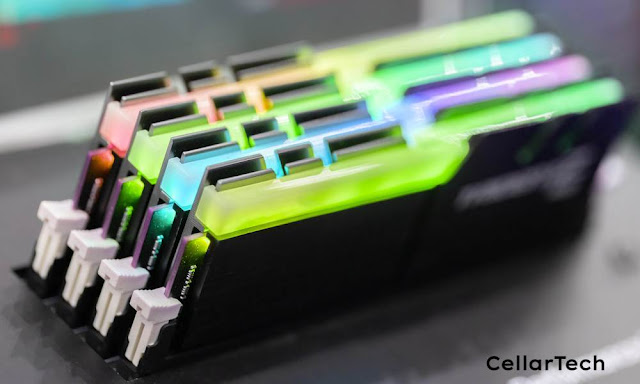We're frequently asked questions
regarding RAM speed, the kind of RAM we recommend, and just how important it is
in certain applications such as gaming. The answer is more complex than just a
higher numbers = more efficient. So , what exactly is RAM and what is the
significance of RAM speed? Find out more here.
What is RAM speed?
For starters, the term "RAM
speed" is somewhat of an oversimplified term and we'll first define the
terms. The speed at which your can run is based on a variety of factors,
including speed, frequency, the total number of channels, the quantity of Dual
Data Rate (DDR) and latency and the speed or generation the processor. When we
talk about "RAM speed" most users are actually talking about the speed
of RAM, or the number of commands it is able to process per second.
For the purposes of this article
we'll use the same terminology. The frequency of RAM is expressed in
milliseconds. It typically follows immediately after the DDR version of the RAM
specifications. For instance, 8GB DDR4-2400 RAM runs at a speed of 2400MHz. The
frequencies of RAM generally range from 800MHz in the older DDR2 modules
5200MHz in DDR5. 5200 MHz with DDR5. The latest generation DDR4 modules are
typically running at 3200MHz.
The most important thing to keep in
mind is that RAM in the system does not handle command-related processes the
way that CPUs do and, while a greater CPU frequency is almost guaranteed to be
a better performance for PCs however, this isn't always the case with
high-frequency RAM. That's why even while higher frequency RAM is technically
faster, this additional speed does not always translate into better real-world
performance.
How important is the speed of your
RAM in gaming?
We've now discovered that RAM with
higher frequencies isn't necessarily affecting general system performance What
impact will it have on benchmarks for gaming or frame rates? From the data
we've managed to discover, there isn't much. If you read an previous article on
VRAM and memory, you'll see that when you're using an integrated graphics card,
it's the video RAM - both in size and speed which directly affects gaming
performance.
In many cases, system RAM won't be
utilized when playing. This is in addition to the other reasons previously
mentioned there is another reason RAM frequency only has the slightest impact
on gaming performance in particular as the graph below shows.
What disadvantages do you see when
you use faster RAM?
Therefore, the higher frequencies of
certain RAM can be a flashy specification however, while they might not aid in
improve the efficiency of the majority of applications, it doesn't cause harm.
you, will it? Well...because higher frequencies RAM is typically overclocked to
achieve those crazy numbers, it could cause RAM associated instability, such as
freezing and crashes.
While this may not be however, it's
been our belief that promoting instability of the system in pursuit of some
extra performance, particularly considering the small amount of extra performance
will actually be seen will be counterproductive. This is the reason we provide
DDR4-2933 ECC as well as DDR4-3200 and DDR5-4800 that are not ECC RAM on the
majority of systems, rather than more powerful speeds. Note You may want to know more about the speed of RAM and
other factors that affect the performance of RAM, take a look at this in-depth
piece .






